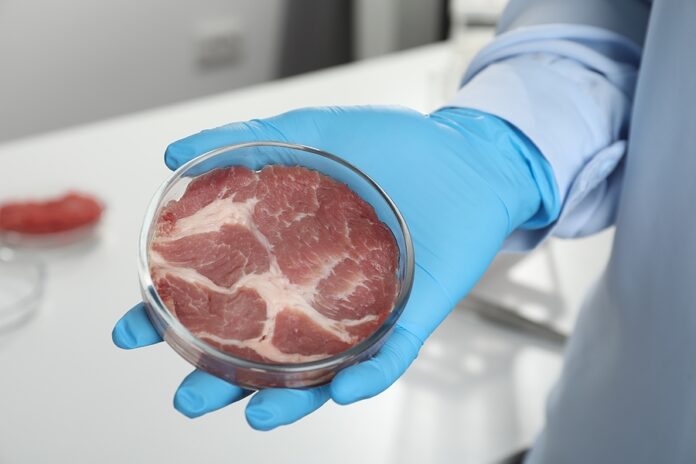
By Rich Dillon, CEO, Ivy Farm Technologies
The enthusiasm and anticipation surrounding cultivated meat are substantial. And with companies like Eat Just and Upside Foods introducing cultivated meat to consumers in Singapore and the US, the industry has taken its first initial steps toward establishing itself as an environmentally impactful alternative to traditional meat, without compromising on flavor or texture.
This new industry has the potential to revolutionize the global production and consumption of meat for the better, as well as driving economic growth — by 2030, McKinsey & Company estimate that the industry could reach a global value of $25 billion.
But in order for cultivated meat to fulfill its potential there are still a number of scaling challenges it must overcome to achieve commercialization, and ultimately gain acceptance from everyday consumers. These challenges I believe will only be overcome through collaboration with established brands and businesses who can leverage their own expertise and resources to scale up production of cultivated meat and to reduce the costs involved in making it, to ensure it can compete with traditionally farmed meat products.
Expanding operations and cutting expenses
An example of such a partnership is the one between Tyson Ventures, the venture investment arm of Tyson Foods, and the company it invested in 2018, Future Meat Technologies. By 2021, Future Meat Technologies stated that it could make a pound of its lab-grown chicken for $7.70, or $16.99 for a kilogram. While this didn’t quite meet their initial goal within two years as hoped, this marked a significant cost reduction in production, largely due to the financial support provided by Tyson Ventures. According to a report by McKinsey and Company in 2021, partnerships like this have had such an impact that “since developing the first prototypes, companies have been able to reduce costs by 99%.”
Credible and scalable technology is equally crucial on the path to mainstream adoption, attracting and reassuring investors. By leveraging these proven technologies developed and owned by established companies, the industry can further speed up the development of cultivated meat production processes, rather than depending solely on nascent and untried methods.
Establishing acceptance and trust
But scaling up and achieving price competitiveness are insufficient on their own. Building consumer trust is another hurdle. Established brands with infrastructure, processing capability, and distribution channels can play a pivotal role in reaching and selling to consumers and assuaging concerns about taste and quality. Partnerships with these brands, trusted widely by consumers, can ease the entry of cultivated meat into shopping baskets and onto dinner tables.
Cultivated meat is a novel product, and there could be some hesitancy from consumers before they buy it. That’s why, to achieve mass adoption of cultivated meat, selling cultivated meat versions of established branded products will be crucial in communicating its safety, sustainability and high quality.
A recent example is the collaboration between Ivy Farm and Finnebrogue, a leading artisan food producer. Together, we plan on bringing wagyu beef burgers to more consumers, meeting the growing demand for meat while minimizing its environmental impact. This partnership was established, in part, due to Finnebrogue’s extensive history and track record of producing premium products without compromising on taste and quality – a fact well-known to their customers. This collaboration exemplifies how cultivated meat can synergize with traditional, established producers, relieving them of the pressure to intensify operations to meet rising demand while simultaneously enhancing consumer choice.
Making the cultivated meat industry credible
Established brands are also instrumental in legitimizing the cultivated meat industry, signaling its viability and growth potential. By investing in the sector, like Tyson Ventures did in 2018, and advocating for its economic and environmental benefits, these brands contribute to attracting the necessary investment for further development.
As the cultivated meat industry continues to grow, more established brands are expected to enter the market, indicating progress and the increasing viability of cultivated meat as a consumer option. Although challenges persist, the support of these brands can speed up scaling and commercialization, and the benefits the industry will provide, such as combating climate change, addressing food insecurity, and building a more ethical food production system, can be realized.
 Rich is CEO of the UK’s leading cultivated meat company, Ivy Farm Technologies, an innovative food tech scale-up on a mission to create the best guilt-free, real meat. Rich is a commercial leader with a history in building successful brands. First at Procter & Gamble, both in the UK and the US, later at Red Bull, and more recently in the international expansion of craft brands owned by Heineken. He holds an MBA from Sam Walton Business School in the USA and a BA in Business from the University of Sheffield.
Rich is CEO of the UK’s leading cultivated meat company, Ivy Farm Technologies, an innovative food tech scale-up on a mission to create the best guilt-free, real meat. Rich is a commercial leader with a history in building successful brands. First at Procter & Gamble, both in the UK and the US, later at Red Bull, and more recently in the international expansion of craft brands owned by Heineken. He holds an MBA from Sam Walton Business School in the USA and a BA in Business from the University of Sheffield.








